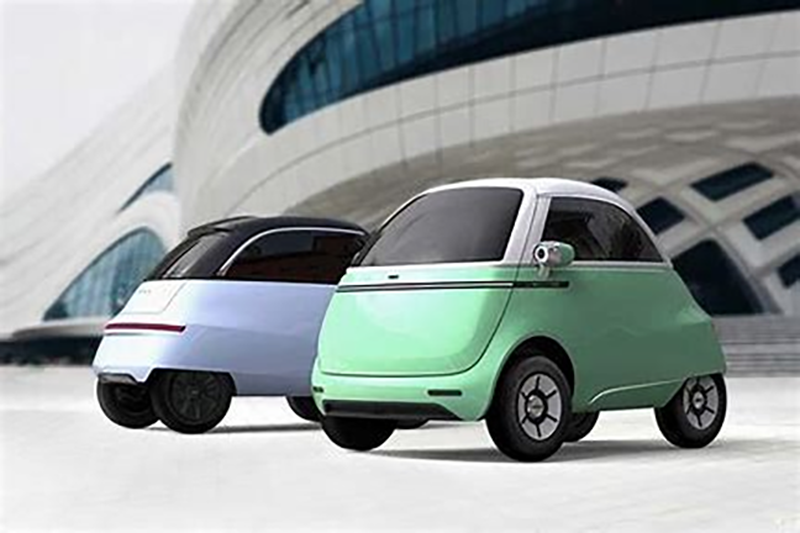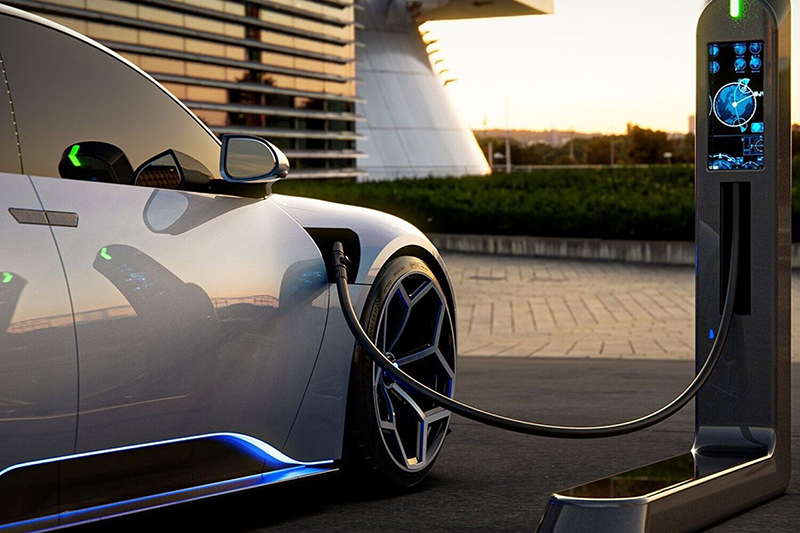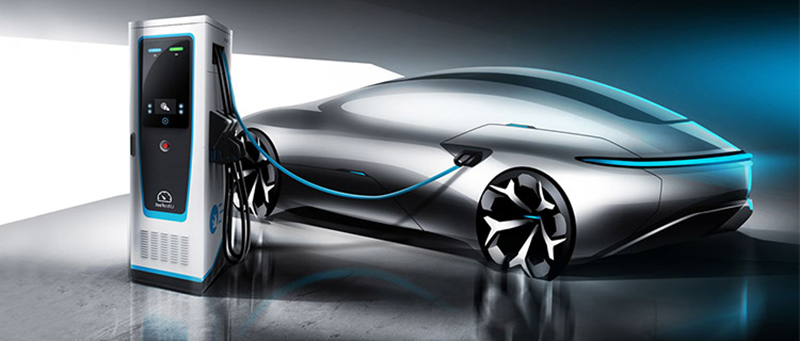The Hungarian government recently announced an increase of 30 billion forints on the basis of the 60 billion forints subsidy electric vehicle program, to promote the popularity of electric vehicles in Hungary by providing car purchase subsidies and discount loans to support enterprises to buy electric vehicles.
The Hungarian government announced a total of 90 billion forints (about 237 million euros) of electric vehicle support plan, its main content includes, first, from February 2024, will officially launch 40 billion forints of state subsidies to support enterprises to buy electric vehicles, Hungarian domestic enterprises can independently choose to buy various types of electric vehicles. At the same time, subsidies are classified according to the number of employees and the battery capacity of electric vehicles. The minimum subsidy amount for each company is 2.8 million forints and the maximum is 64 million forints. The second is to provide 20 billion forints of discount interest loan support for companies that provide vehicle services such as electric car leasing and sharing. In the next two and a half years, it will invest 30 billion forints in the construction of 260 high-capacity charging stations on the national road network, including 92 new Tesla charging stations.
The Hungarian government recently announced an increase of 30 billion forints on the basis of the 60 billion forints subsidy electric vehicle program, to promote the popularity of electric vehicles in Hungary by providing car purchase subsidies and discount loans to support enterprises to buy electric vehicles.
The Hungarian government announced a total of 90 billion forints (about 237 million euros) of electric vehicle support plan, its main content includes, first, from February 2024, will officially launch 40 billion forints of state subsidies to support enterprises to buy electric vehicles, Hungarian domestic enterprises can independently choose to buy various types of electric vehicles. At the same time, subsidies are classified according to the number of employees and the battery capacity of electric vehicles. The minimum subsidy amount for each company is 2.8 million forints and the maximum is 64 million forints. The second is to provide 20 billion forints of discount interest loan support for companies that provide vehicle services such as electric car leasing and sharing. In the next two and a half years, it will invest 30 billion forints in the construction of 260 high-capacity charging stations on the national road network, including 92 new Tesla charging stations.

The launch of this program is not only praised by electric vehicle manufacturers, that will greatly promote the growth of electric vehicle production, at the same time, individual enterprises, taxi companies, car sharing companies, etc., will also benefit from subsidies to buy electric vehicles at discounted prices, helping to reduce the company's operating costs.
Some analysts believe that in addition to playing an important role in combating climate change and energy independence, the Hungarian government's plan to subsidize electric vehicles will have two far-reaching effects on the Hungarian economy. One is to connect the production and consumption sides of the electric vehicle industry. Hungary aims to become the largest producer of electric vehicle power batteries in Europe, with five of the world's top 10 power battery producers already based in Hungary. Hungary's share of electric vehicles in the new car market has risen to more than 6%, but there is still a big gap from the share of electric vehicles in Western Europe more than 12%, there is a lot of room for development, now from the production side and the consumer side to work together to promote the overall development of the electric vehicle industry mechanism has been formed.

The other is that the network of charging stations is being "national networked". A nationwide network of charging stations is crucial to promoting the development of the electric vehicle industry. At the end of 2022, there were 2,147 charging stations in Hungary, an increase of 14% year-on-year. At the same time, the value of the subsidy electric vehicle program is that it can help more departments participate in the field of electric vehicles. For example, convenient charging facilities will also be a huge attraction for European road trips, which will have a positive effect on Hungary's tourism industry.
Hungary can implement a full range of subsidies for electric vehicles, the main reason is that in December 2023, the European Union finally agreed to release a partial freeze of Hungary's EU funds, the first phase of about 10.2 billion euros, will be issued to Hungary from January 2024 to 2025.
Second, Hungary's economic recovery has achieved remarkable results, alleviating the difficulties of the national budget and boosting investment confidence. Hungary's GDP grew 0.9% quarter-on-quarter in the third quarter of 2023, beating expectations and marking the end of a year-long technical recession. Meanwhile, Hungary's inflation rate in November 2023 was 7.9%, the lowest since May 2022. Hungary's inflation rate has fallen to 9.9% in October 2023, meeting the government's target of controlling inflation to single digits by the end of the year. Hungary's central bank continued to cut its benchmark interest rate, lowering it by 75 basis points to 10.75%.

Third, Hungary has made clear efforts to develop electric vehicle-related industries. At present, the automotive industry accounts for 20% of Hungary's exports and 8% of its economic output, and the Hungarian government believes that electric vehicle-related industries will be the backbone of the global economy in the future. The future of the Hungarian economy is to be dominated by green energy, and the traditional automobile industry must be transformed to electric vehicles. The Hungarian car industry will shift entirely to battery power. Therefore, from 2016, Hungary began to formulate the development plan for electric vehicles, the Hungarian Ministry of Energy in 2023 to develop a new policy to encourage the use of green energy is now under consultation, clearly encourage the use of pure electric vehicles, indicating that it is a decisive tool for the green transport industry, while proposing to cancel the green license plate permit for plug-in hybrid electric vehicles.

Hungary has introduced subsidies for personal purchase of electric vehicles from 2021 to 2022, with a total subsidy amount of 3 billion forints, while purchasing electric vehicles also enjoy personal income tax exemptions and free parking fees in public parking lots and other incentives, making electric vehicles popular in Hungary. Electric vehicle sales increased by 57% in 2022, and June 2023 data showed that the number of green number plate vehicles in Hungary, including plug-in hybrid vehicles, exceeded 74,000, of which 41,000 were pure electric vehicles.
Electric buses are also entering the field of public transport in Hungary, and the Hungarian government plans to replace 50% of traditional fuel buses with low-carbon buses in major Hungarian cities in the future. In October 2023, Hungary launched the first public procurement procedure for the operation of public services for electric buses, and from 2025, the bus fleet in the capital Budapest will have 50 modern, environmentally friendly, fully electric buses, and service providers will also have to be responsible for the design and operation of the charging infrastructure. At present, the city of Budapest still has nearly 300 old buses that need to be replaced, and prefers to purchase zero-emission vehicles in the public transport sector, and has identified the renewal of electric buses as a long-term goal.
In order to reduce the cost of charging, the Hungarian government has launched a policy to support the installation of solar energy systems in households from January 2024, helping households to produce, store and use green energy. The Hungarian government also implemented a subsidy policy of 62 billion forints to encourage enterprises to build their own green energy storage facilities. Companies can receive state financial support as long as they use energy storage facilities and ensure that they can operate for at least 10 years. These energy storage facilities are scheduled to be completed by May 2026, and will increase the scale of self-built energy storage by more than 20 times compared to the current level in Hungary.
Post time: Jan-08-2024





